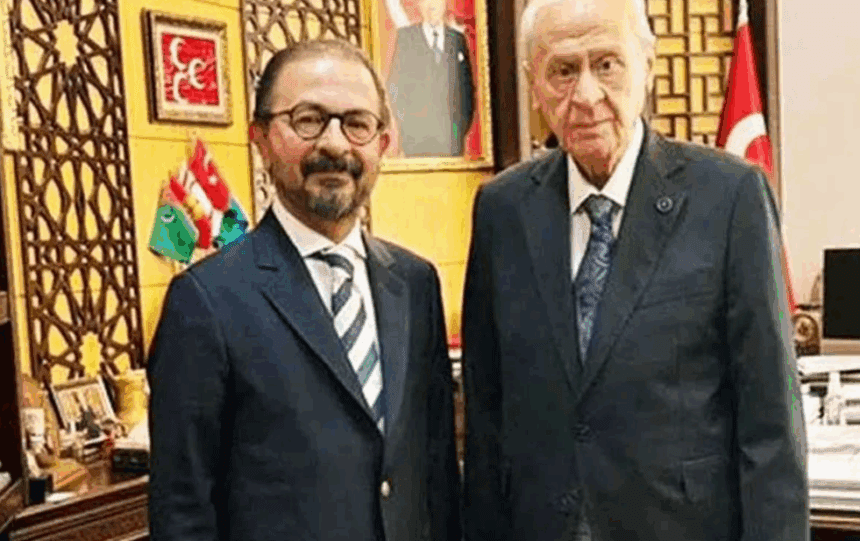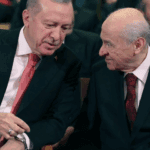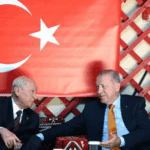İsmet Sayhan — an attorney and former chair of the state-run Machinery and Chemical Industry Corporation (MKE) who has served as Defense Minister Yaşar Güler’s personal lawyer — was detained in Ankara as part of an Istanbul Chief Public Prosecutor’s Office investigation into alleged criminal-organization membership and espionage, officials said. Police searched his home and office before transferring him to Istanbul for questioning, according to prosecutorial sources.
The detention comes amid a broader law-enforcement push targeting figures portrayed as close to Nationalist Movement Party (MHP) chief Devlet Bahçeli. Last week, 17 suspects were rounded up in Istanbul-led operations spanning Ankara, Antalya, Muğla and Samsun. Courts later jailed 10, including Selahattin Yılmaz, whom prosecutors accuse of leading an organized crime group, along with lawyers Cem Duman and Semra Ilık. Six suspects were placed under judicial control and one was released. The arrests triggered a political exchange after Republican People’s Party (CHP) leader Özgür Özel referred to Yılmaz as a “hired killer and assassin” in a speech in Aydın. Bahçeli publicly defended Yılmaz as his “ülküdaş” and “comrade in our cause,” arguing that no ülkücü can be labeled a hired killer, assassin, traitor or illegitimate, and accusing the CHP of debasing political discourse.
Separate reporting and documents circulating on social media allege that after exiting MKE, Sayhan began advising ASSAN Defense, a company that the Defense Ministry had barred from public tenders for two years following a procurement controversy involving MKE. A screenshot—said to have been posted to Sayhan’s WhatsApp Status and then swiftly deleted—appears to show him forwarding to ASSAN’s board chair a draft consultancy agreement and a document titled “MKE Special Project Consultancy Agreement.” Excerpts attributed to the same exchange suggest confidential pricing and planning data from the Turkish Armed Forces’ multi-year 155 mm artillery-shell procurement for 2025–2027 were conveyed, including figures associated with MKE, the Land Forces Command and ASSAN. Legal commentators cited in local coverage say that, if authenticated, such disclosures could implicate state trade-secret protections and raise bid-rigging concerns. There is also public debate over whether Sayhan’s transition complied with post-public-service cooling-off rules under Law No. 2531, though no court has ruled on the matter.
On Aug. 21, Sayhan rejected the claims as baseless and part of a systematic smear campaign. He said reports that he exposed Defense Ministry (MSB) and Turkish Armed Forces (TSK) procurement plans and secret contracts were untrue and vowed to pursue all legal remedies. He added that his roughly three-month stint as MKE board chair was a temporary appointment that ended with his resignation once a new board could be formed, describing narratives about political pressure as a malicious provocation.
The episode has sharpened unease in Turkey’s defense sector, which has been rattled by wider allegations of improper personnel transfers and sensitive know-how migration. In recent weeks, sector sources have claimed that after leaving TÜBİTAK SAGE, ASSAN general manager Gürcan Okumuş recruited 18 engineers and that products similar to SAGE munitions emerged at ASSAN shortly thereafter, with public reporting linking the moves to program delays at the research institute. Local outlets have also spotlighted nine former MKE staff allegedly hired by ASSAN in breach of rules. None of these allegations has been adjudicated, and the companies and institutions involved have not issued detailed public statements addressing the specific materials said to have circulated on social media.
Images circulating online have shown Sayhan seated with figures including Selahattin Yılmaz and CHP MP Cemal Enginyurt, fueling commentary about overlapping political and legal narratives. Prosecutors have not indicated whether such associations form any part of the evidentiary record in the Sayhan case.



